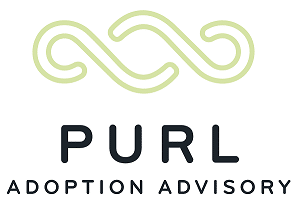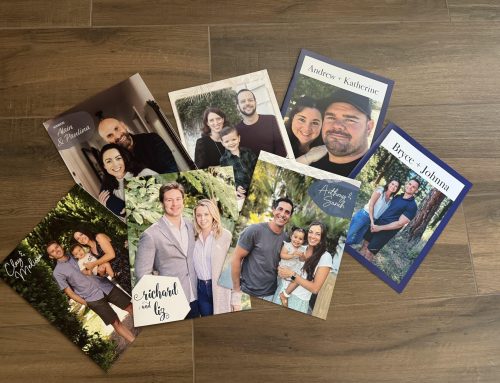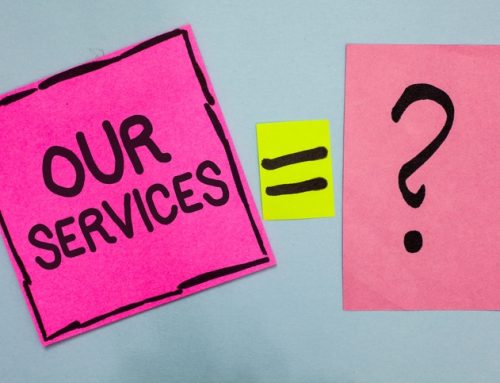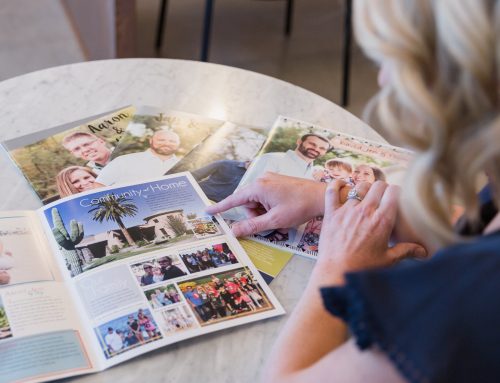
When you are an adoptive parent, you are bound to get questions from friends, family and strangers alike about the details of your child’s adoption story, particularly if you have adopted transracially. As a mom of two girls only eight months apart in age (and currently the exact same height), I can’t seem to get out of a public place without questioning stares and at least one person asking me how I managed to get two such adorable, but completely different looking children. I have never had a trip to Costco with the girls without someone asking me where Cora’s adorable auburn curls and gorgeous brown eyes came from. When the girls were babies, I would answer depending on how I was feeling that particular day. I would smile and say something coy like “magic”, or “she’s just lucky”, but other times when I was more open to discussion I would say “we were blessed with one of our children through adoption”. But I quickly learned through opening that door that complete strangers have no qualms about asking very invasive questions about adoption, even if those questions are being asked right in front of my child. Questions like “why didn’t her parents want her?”, “why couldn’t you have kids?”, “what was her birth mother like?” or to the more egregious questions like “was she born addicted to drugs?” The most surprising question I received after answering that Cora was adopted, was “oh that’s nice … how much did she cost?” (of course, it too happened at Costco). But the question that angered me the most was from a massage therapist I went to when I was pregnant with Raelyn. He had the nerve to ask me why I didn’t “give Cora back” when I found out I was pregnant with Raelyn. I still get mad even thinking about that, had I not been naked under that sheet I probably would have jumped off the table and decked him, and blamed pregnancy hormones! Due to all these experiences, as the girls have gotten older and can understand what is being said around them, my standard response now is to shut the conversation down quickly without much explanation.
Not being vocal about my child’s adoption story was admittedly a hard lesson for me to learn, mainly because I have always considered myself an open book and I am very passionate about my love of adoption. I had always thought that if my experiences could help others in any way, then I would share them freely. I had openly answered detailed questions about my infertility, unsuccessful fertility treatments and our plans to adopt. So before we were chosen as Cora’s parents and when she was very young, I shared some details of Cora’s story with friends and family. Even though there is nothing sordid or traumatic about Cora’s story, it is something I wish I could take back. Instead, all I can do now is protect her story going forward and encourage you, as hopeful adoptive parents and adoptive parents to do better than I did – to learn from my mistakes. These strangers’ appalling questions taught me the hard way that the details of Cora’s adoption story aren’t simply my story to parenthood, but Cora’s personal adoption story. It needs to be her decision when she’s old enough to tell people, including friends, family and perfect strangers about the details of adoption, including information about her birth family. As her mom, it is my job to protect the details of that story, for her and her birth family’s privacy and because she should get the right to decide who gets to know why her birth mother made that difficult decision to make an adoption plan. So, if you are a hopeful adoptive parent, know that you will soon be faced with these sorts of questions. You should start to consider what your responses will be, even to those well-meaning friends and family members that ask questions that you don’t feel totally comfortable answering. I know it will be hard, and you may hurt some feelings, but we recommend keeping the details of your child’s adoption within a very small circle, maybe even limited to your immediate family. In fact, we believe one of the biggest benefits to hiring an adoption advisor is having someone to discuss the details of a potential adoption situation with openly, instead of sharing them with your normal confidants. Because that potential adoption situation may lead you to your child – the child you too will do everything in your power to protect.
No matter what you do, just know that when they are old enough, your children are listening; listening to the questions that others ask and the way you respond to them. On our last trip to Costco as we were waiting in a long line to check out, a woman nearby looked us over and boldly asked where Cora’s curls came from. Before I could even respond, my witty little three year old said with a smile, “the store”… I think I may bring that response into my normal rotation.
For more adoption articles like this one delivered right to your inbox, sign up for our e-newsletter today at the bottom of this page. Whether or not you are planning to work with an adoption advisor, we are passionate about educating adoptive parents about the adoption process and the things you need to know along the way.

When you are an adoptive parent, you are bound to get questions from friends, family and strangers alike about the details of your child’s adoption story, particularly if you have adopted transracially. As a mom of two girls only eight months apart in age (and currently the exact same height), I can’t seem to get out of a public place without questioning stares and at least one person asking me how I managed to get two such adorable, but completely different looking children. I have never had a trip to Costco with the girls without someone asking me where Cora’s adorable auburn curls and gorgeous brown eyes came from. When the girls were babies, I would answer depending on how I was feeling that particular day. I would smile and say something coy like “magic”, or “she’s just lucky”, but other times when I was more open to discussion I would say “we were blessed with one of our children through adoption”. But I quickly learned through opening that door that complete strangers have no qualms about asking very invasive questions about adoption, even if those questions are being asked right in front of my child. Questions like “why didn’t her parents want her?”, “why couldn’t you have kids?”, “what was her birth mother like?” or to the more egregious questions like “was she born addicted to drugs?” The most surprising question I received after answering that Cora was adopted, was “oh that’s nice … how much did she cost?” (of course, it too happened at Costco). But the question that angered me the most was from a massage therapist I went to when I was pregnant with Raelyn. He had the nerve to ask me why I didn’t “give Cora back” when I found out I was pregnant with Raelyn. I still get mad even thinking about that, had I not been naked under that sheet I probably would have jumped off the table and decked him, and blamed pregnancy hormones! Due to all these experiences, as the girls have gotten older and can understand what is being said around them, my standard response now is to shut the conversation down quickly without much explanation.
Not being vocal about my child’s adoption story was admittedly a hard lesson for me to learn, mainly because I have always considered myself an open book and I am very passionate about my love of adoption. I had always thought that if my experiences could help others in any way, then I would share them freely. I had openly answered detailed questions about my infertility, unsuccessful fertility treatments and our plans to adopt. So before we were chosen as Cora’s parents and when she was very young, I shared some details of Cora’s story with friends and family. Even though there is nothing sordid or traumatic about Cora’s story, it is something I wish I could take back. Instead, all I can do now is protect her story going forward and encourage you, as hopeful adoptive parents and adoptive parents to do better than I did – to learn from my mistakes. These strangers’ appalling questions taught me the hard way that the details of Cora’s adoption story aren’t simply my story to parenthood, but Cora’s personal adoption story. It needs to be her decision when she’s old enough to tell people, including friends, family and perfect strangers about the details of adoption, including information about her birth family. As her mom, it is my job to protect the details of that story, for her and her birth family’s privacy and because she should get the right to decide who gets to know why her birth mother made that difficult decision to make an adoption plan. So, if you are a hopeful adoptive parent, know that you will soon be faced with these sorts of questions. You should start to consider what your responses will be, even to those well-meaning friends and family members that ask questions that you don’t feel totally comfortable answering. I know it will be hard, and you may hurt some feelings, but we recommend keeping the details of your child’s adoption within a very small circle, maybe even limited to your immediate family. In fact, we believe one of the biggest benefits to hiring an adoption advisor is having someone to discuss the details of a potential adoption situation with openly, instead of sharing them with your normal confidants. Because that potential adoption situation may lead you to your child – the child you too will do everything in your power to protect.
No matter what you do, just know that when they are old enough, your children are listening; listening to the questions that others ask and the way you respond to them. On our last trip to Costco as we were waiting in a long line to check out, a woman nearby looked us over and boldly asked where Cora’s curls came from. Before I could even respond, my witty little three year old said with a smile, “the store”… I think I may bring that response into my normal rotation.
For more adoption articles like this one delivered right to your inbox, sign up for our e-newsletter today at the bottom of this page. Whether or not you are planning to work with an adoption advisor, we are passionate about educating adoptive parents about the adoption process and the things you need to know along the way.



